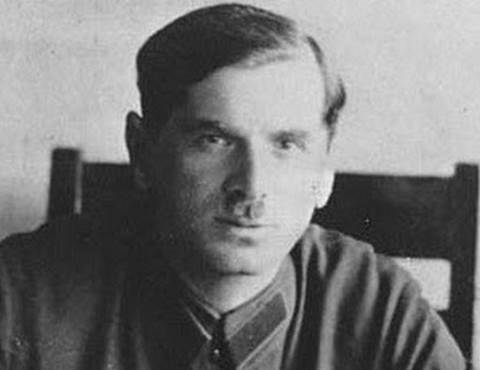Naftaliy Frenkel: How the “Odessa King” Became the Head of the Gulag
Naftaliy Frenkel:

How the “Odessa King” Became the Head of the Gulag It is not for nothing that many historians consider Naftaliy Frenkel to be one of the most entertaining figures in Russian history. Frenkel managed to transform himself from an ordinary convict into the organizer of the Gulag system. And Frenkel’s ascent up the career ladder began when he announced to the prison authorities that he would be able to build a bathhouse for prisoners in just one day. A millionaire in the Solovetsky camp from Odessa, Naftali Aronovich Frenkel, as Valery Smirnov put it in his book “The Fifth Corner”, was able to turn everything he touched into gold. He traded in wood and weapons, owned a steamship company, was engaged in smuggling, and gambled on the stock exchange. Even before the revolution, Naftalia Frenkel, who was called the “forest king of the Black Sea”, managed to become a millionaire. Frenkel was indeed a kind of parochial monarch, to whom even the press was subordinate: he published his own newspaper “Kopeyka”. In 1924, however, Naftalia’s empire came to an end. According to the authors of the publication “100 Great Adventurers”, in January of the mentioned year, a group of Moscow Chekists arrived in Odessa, who arrested many high-ranking residents of the city and entrepreneurs. Frenkel was also taken into custody. The “King of the Black Sea” was sentenced to death. However, when Naftaliy was brought to the place of execution, he was suddenly told that the death sentence had been commuted to 10 years in prison. Frenkel went to the Solovetsky camp to serve his sentence. Sauna in one day However, Naftalia Frenkel wanted to live in the camp no worse than outside. So the first thing he did was to try to stand out from the crowd of prisoners. According to Alexander Kupriyanov, the author of the book “The Stoker”, Frenkel first managed to attract the attention of the prison authorities when the threat of a typhus epidemic loomed over Solovki. While the typhus louse was spreading the disease around the island at an incredible rate, there was not even a bathhouse in the camp. It was its construction that Naftaliy Frenkel undertook. He told the administration that he would be able to build a bathhouse in one day, but in fact he managed it in only 21 hours. The author of the book “The Inextinguishable Lampada” Boris Shiryaev, who also had to serve his sentence in the Solovetsky camp, wrote that Naftaliy Frenkel selected 30 young and relatively healthy men for the construction of the bathhouse, whom he “diluted” with 20 old and disabled people. The calculation was simple: the young prisoners, feeling sorry for their elderly and sick comrades, worked like animals. And as a result, after just a few hours of work, the camp had its own bathhouse. A dizzying career Soon the epidemic was stopped, and Naftali Frenkel became the head of the economic department of the camp. However, there are versions that this appointment happened not due to the bathhouse built in record time, but through bribes and the help of high-ranking patrons of the Odessa millionaire. As indirect evidence of this assumption, we can cite the fact that at the request of the head of the Solovetsky Camp Administration, Eichmanns, the period of Frenkel’s imprisonment was significantly shortened, and in 1927 he was already released. In addition, according to Ivan Chistyakov, the author of the book “The Siberian Far Side”, Naftali Frenkel was accepted into the OGPU immediately after his release. For some time, already in the role of a freelancer, the former “forest king of the Black Sea” worked in a senior position in Solovki. The successful organization of labor in the camp aroused interest, and in 1929 Frenkel was transferred to Moscow as the head of the representative office of the USLON of the OGPU. Subsequently, it was Naftaliy Frenkel who supervised the construction of such well-known facilities as the White Sea-Baltic Canal and the Baikal-Amur Mainline. But unlike many Gulag leaders, Frenkel managed to avoid disgrace. He was honorably retired and died of natural causes at the age of 77.
